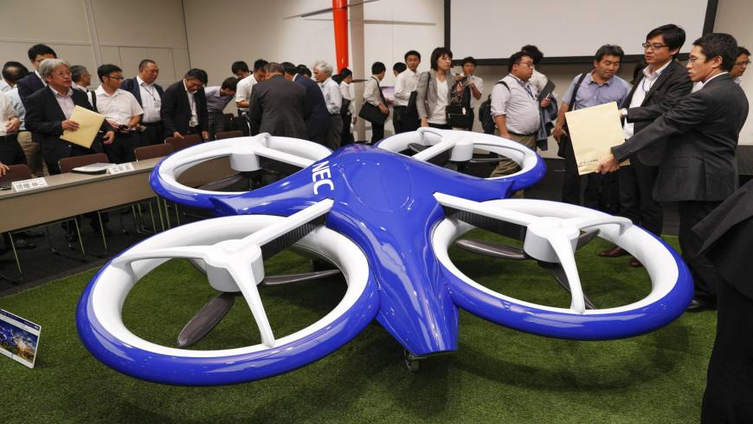NEC demonstrates its flying car prototype

Credit: NEC
The Japanese tech giant takes a big step into the realm of the multicopter
NEC, in conjunction with Japanese start-up Cartivator, has unveiled a flying car that Japan hopes to have in service by 2030.
The craft flew for around 50 seconds in front of reporters. Tethered with a rope, it managed to lift around 3 metres off the ground and looked somewhat wobbly in flight.
The aircraft uses four propellers, each around 1.5m long. Though this test flight was conducted without anyone on board, the craft has a compact cabin for its pilot and passengers.
Perhaps unsurprisingly, preparations for the test flight took up more time than the two brief demonstrations of the car. Reporters were instructed to wear helmets, with the demonstration taking place in a mesh cage, for safety reasons.
An earlier flying car tested by Cartivator crashed in a 2017 demonstration. Cartivator Chief Executive Tomohiro Fukuzawa claimed its machines could now stay in the air for much longer.
NEC reportedly has the backing of the Japanese government with plans for large-scale drone deliveries to commence in 2023. Part of the plan is a huge test course which is set to be built in an area devastated by the 2011 tsunami and nuclear disasters, in Fukushima, in northern Japan.
NEC is one of over 80 sponsor companies for Cartivator’s flying car, which also include Toyota and video game company Bandai Namco Holdings. NEC officials stated that the flying car was intended as an unmanned delivery craft, but that the company’s technology could be used in space travel and cybersecurity.
This is not the first time that big companies have thrown their influence behind flying cars and unmanned vehicles. US-based Uber is planning demonstrator flights in 2020 and Ford this year unveiled a delivery robot for its unmanned vehicles.
